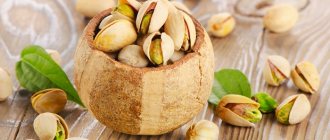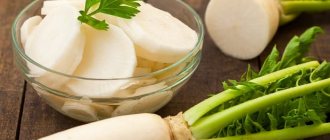Coconuts are large seeds of coconut palms (lat. Cocos nucifera) that grow in tropical climates. Their brown, fibrous shell hides the flesh inside.
As oil and milk from this fruit become increasingly popular, many people may wonder how to use coconut meat and whether it has any health benefits.
This article tells you everything you need to know about coconut meat.
Nutritional value, composition and calorie content
Coconut meat is high in fat and calories, and moderate in carbohydrates and protein.
An 80-gram serving of fresh, grated coconut contains ():
- Calories : 283 kcal
- Protein : 3 grams
- Carbohydrates : 10 grams
- Fat : 27 grams
- Sugar : 5 grams
- Fiber : 7 grams
- Manganese : 60% of recommended daily intake (RDI)
- Selenium : 15% of RDI
- Copper : 44% of RDI
- Phosphorus : 13% of RDI
- Potassium : 6% of RDI
- Iron : 11% of RDI
- Zinc : 10% of RDI
Coconut meat is rich in several important minerals, especially manganese and copper. While manganese supports enzyme function and fat metabolism, copper promotes bone formation and heart health (,).
Fat
Coconut is a unique fruit due to its high fat content. About 89% of the fat in its pulp is saturated ().
Most of these fats are medium chain triglycerides (MCTs), which are completely absorbed in the small intestine and are used by your body for energy ().
Cellulose
Just 80 grams of shredded coconut meat supplies the body with 7 grams of fiber, which is more than 20% of the RDI ().
Most of this fiber is insoluble, meaning it is not digested in the gastrointestinal tract. Instead, it promotes food movement through the digestive system and gut health.
Summary:
Coconut meat is especially rich in calories, saturated fat and fiber. It also contains various minerals, including manganese, copper, selenium, phosphorus, potassium and iron.
Application area
Due to its chemical composition, coconut is used in various fields. Application areas are not limited to cosmetology, cooking and treatment. The shell is an excellent basis for making souvenirs, tableware, and musical instruments. Household and building materials are produced from fiber.
Cosmetology
Coconut pulp is used to obtain oil, which is used to produce perfumes and body care products. The peculiarities of consuming herbal composition help replenish the necessary microelements for the health and beauty of the skin.
Systematic use of coconut-based products nourishes hair, moisturizes and protects from external influences. The oil is used in massage treatments. Gently cares for the skin and relaxes the central nervous system.
For medicinal purposes
The tropical nut has found application in folk and traditional medicine. It is part of various drugs that have anti-inflammatory and antifungal effects. Some components have a good effect on the functioning of the body and metabolism, and help normalize digestion.
Cooking
Coconut is widely used in cooking. It is eaten in various forms: fresh, dried, as a paste, chips. High nutritional value energizes, strengthens the immune system, removes waste and toxins.
The shavings are added to baked goods, porridge, salads, and snacks. Drinks, soups, and desserts are prepared using milk. You shouldn’t limit yourself even to those people who adhere to proper nutrition and a special diet.
When losing weight
It is believed that to lose weight you need to include coconut in your diet. Often used as part of a low carbohydrate diet. The right vegetable fats replenish the energy balance necessary for natural activity.
When losing weight, coconut helps reduce appetite, reduce hunger and quickly replenish satiety. Eating on the coconut diet is easier, even if you follow a strict plan.
Health Benefits of Coconut Meat
Coconut meat can benefit your health in several ways.
Much of the research on the benefits of this tropical fruit has focused on its fat content.
May improve heart health
Coconut meat contains coconut oil, which can increase HDL (good) cholesterol levels and lower LDL (bad) cholesterol levels. Improving these indicators can reduce the risk of developing cardiovascular disease ().
In one 4-week study, a group of 91 people was divided into three subgroups. Some were given 50 ml of natural coconut oil daily, others olive oil, and others unsalted butter. Subjects in the coconut oil group showed a significant increase in HDL (good) cholesterol levels compared to those taking butter or olive oil ().
An 8-week study in 35 healthy adults showed similar results, finding that 1 tablespoon (15 ml) of coconut oil taken twice daily resulted in a significant increase in HDL cholesterol levels compared to the control group ().
Another 8-week study noted that people who ate 200 grams of porridge made with coconut milk had a significant reduction in LDL (bad) cholesterol levels and an increase in HDL (good) cholesterol levels compared to those who ate porridge made with coconut milk. soy milk ().
May promote weight loss
Coconut pulp can help you lose weight.
Research shows that the MCTs in this fruit may help promote feelings of fullness, burn calories and burn body fat, all of which can promote weight loss (, ,).
Additionally, the high levels of fiber in coconut meat may promote feelings of fullness, which may help prevent overeating (,).
A 90-day study of 8 adults found that adding 100 grams of fresh coconut meat to a standard daily diet resulted in significant weight loss compared to adding the same amount of peanuts or peanut butter ().
Keep in mind that these studies used very large amounts of coconut oil and MCT oil, so it is unclear whether eating less coconut meat would have the same effect.
May help digestion
Coconuts are high in fiber, which helps increase stool bulk and supports intestinal motility, promoting digestive health (,).
Because these fruits are also high in fat, they can help your body absorb fat-soluble nutrients, including vitamins A, D, E, and K.
In addition, the MCTs in coconut meat have been shown to improve gut flora, which may help protect against inflammation and conditions such as metabolic syndrome ().
What's more, coconut oil can reduce the growth of harmful yeasts such as Candida albicans, which can cause serious infections ().
Other useful properties
Eating coconut meat may have other beneficial effects, including the following:
- May stabilize blood sugar levels . This fruit may lower fasting blood sugar levels and improve gut flora, helping control blood sugar levels (, ,).
- May strengthen the immune system . The manganese and antioxidants in coconut can help strengthen your immune system and reduce inflammation. The MCTs in this fruit may also have antiviral, antifungal, and antitumor properties (, , , ).
- May benefit your brain . The MCTs in coconut oil provide an alternative source of energy that may help people with memory or brain problems such as Alzheimer's disease (,).
Summary:
The MCTs and fiber in coconut meat may help promote weight loss, heart health, digestion, brain health, blood sugar and immunity.
What does coconut milk taste like?
Many who have never tried coconut milk in their life are sure that it is like canned condensed milk, only with coconut flavor. Coconut milk has a fairly mild taste and is not at all cloying.
Coconut milk can be used to make Nata de Coco jelly, which means "cream of coconut" in Spanish. This dessert, apart from the name, has little in common with cream. It is very sweet, but does not contain the fatty, gelatinous, translucent material that comes in various shaped candies. It is obtained by fermenting coconut milk.
Nata de Coco is from the Philippines. It is, of course, produced in Spain, but also by commercial farmers in the Philippines. The lack of fat, cholesterol and preservatives makes the dessert a relatively healthy choice. It is served with ice cream, fruit and drinks.
Potential Harm of Coconut Meat
Although coconut meat has many beneficial properties, it can also have disadvantages.
It contains significant amounts of saturated fat, which is still controversial in scientific circles.
A study of more than 115,000 healthy adults found that high saturated fat intake was associated with an increased risk of developing cardiovascular disease ().
Although the impact of saturated fat on the development of heart disease is still debated, research suggests that replacing saturated fat with unsaturated fat may reduce the risk of developing heart disease ().
Some scientists argue that although coconuts do not appear to harm heart health, most people do not eat enough of them to experience any negative effects ().
Considering that coconut meat may also have a positive effect on your heart, more research is needed regarding the effects of its consumption on heart health.
It should be noted that coconut meat contains a lot of calories. Excess consumption can lead to unwanted weight gain if you don't restrict calories elsewhere.
Finally, some people may be allergic to coconut. However, this type of allergy is rare and is not always associated with other types of nut allergies ().
Summary:
Coconuts are high in saturated fat, a controversial type of fat that can be harmful when consumed in large quantities. Moreover, coconut meat is quite high in calories and some people may be allergic to it.
Video
Watch the video on how to get coconut pulp:
Regular consumption of coconut pulp will stabilize the body's functioning, make the skin healthy, and hair and nails strong. You can use this product to prepare a huge number of interesting dishes, bake cakes and pastries, make desserts and snacks. Homemade coconut masks and creams will become indispensable environmentally friendly body care products. The pulp is recommended for consumption by adults and children. It should not be used only by people with individual intolerance.
How to use coconut meat
Coconut meat can be purchased in many forms, including frozen, shredded, or dried.
In some places you can even buy whole coconuts. You will need to pierce the soft parts of the coconut with a nail or any other sharp object and then drain the milk, after which you can crack the shell. Remove the pulp with a spoon if it is soft, or with a knife if it is hard.
Here are some ways to use coconut meat:
- grind it to add to fruit salad, yogurt or oatmeal
- add it to smoothies and sauces
- combine it with breadcrumbs to coat meat, fish, poultry or tofu before cooking
- add to muesli or agil
- include fresh coconut pieces in stir-fries, stews or porridges
Many dried and packaged coconut products are heavily sweetened, which significantly increases the sugar content.
An 80-gram serving of fresh unsweetened coconut contains only 5 grams of sugar, while a 93-gram serving of sweetened shredded coconut contains a whopping 34 grams (, ).
Thus, unsweetened or raw foods are the healthiest.
Summary:
Both fresh and dried coconut meat can be used in a variety of dishes such as porridges, smoothies and salads. Look for unsweetened or fresh foods to minimize your sugar intake.
Where it is used - in cosmetology
For face
Coconut oil is perfectly absorbed by the skin, activating the action of all components of the composition. There are many options for therapeutic and nutritional masks based on this unique product. Here's an example of a mask for aging skin:
- Take coconut oil and blue clay in equal parts, mix, add 3 drops of orange essential oil. Then apply this mixture to your face for a quarter of an hour.
- And this mask is suitable for any skin type. Coconut oil must first be melted, then mixed in a ratio of 1:4 with rice flour. In order for the mixture to acquire the consistency of thick sour cream, you need to add green tea.
- You can wipe your eyelids and the area around your eyes with coconut milk before going to bed - this will moisturize the skin well and serve as an excellent prevention of the premature appearance of wrinkles.
For hair
If you regularly nourish your hair with coconut oil, it will stop losing protein. This is explained by the fact that the oil base envelops each individual hair, thereby protecting it from all types of damage, including the consequences of using dyes, curling irons, and straightening irons.
No special skills are required to perform the cosmetic procedure. You just need to melt a small amount of oil in your palms and then apply it to your hair. It is not recommended to apply coconut oil to the scalp as it can cause breakouts and irritation. It is advisable to put a bag over your head to create a steam effect - the oil will work better. Those with oily hair should not use coconut oil, as this too oily product will only make the problem worse.
For cosmetic purposes, coconut oil is used in massage parlors: it is used to combat cellulite.
Summarize
- Coconut meat is the white flesh of coconuts that is consumed fresh or dried.
- Rich in fiber and MCTs, it has a number of benefits including improving heart health, weight loss and aiding digestion. However, coconut meat is high in calories and saturated fat, so you should eat it in moderation.
- Overall, unsweetened coconut meat is an excellent addition to a balanced diet.
The article was prepared by experts for informational purposes only. It should not be used as a guide for treating medical conditions and is not a substitute for professional medical advice, diagnosis, or treatment. In case of illness or any symptoms, you should always consult a doctor and not self-medicate.
Tags: Coconut
About the author: Alexander Fedorov
Candidate of Biological Sciences, biologist, nutrition expert. Graduated from Stavropol State University with a degree in Biology at the Faculty of Biology and Chemistry.
- Related Posts
- Brazil nut: benefits and harm for the body of women and men
- Chickpea flour: health benefits, how to make at home
- 13 Best Nuts and Seeds for a Ketogenic Diet
« Previous entry
Coconut oil: disease prevention, beneficial properties
Coconut oil, coconut fat, is the oil obtained by pressing and heating copra, the hard pulp of coconut palm nuts. Usually found in purified, deoxidized and bleached forms.
In liquid form it is slightly yellow. At temperatures below 25°C it appears as a truncated white fat (hence also called coconut oil). Very rarely sold as a cold-pressed oil, which remains natural, with the typical smell of coconut, making it a very valuable, sought-after and expensive product. The refined version has almost no smell.











